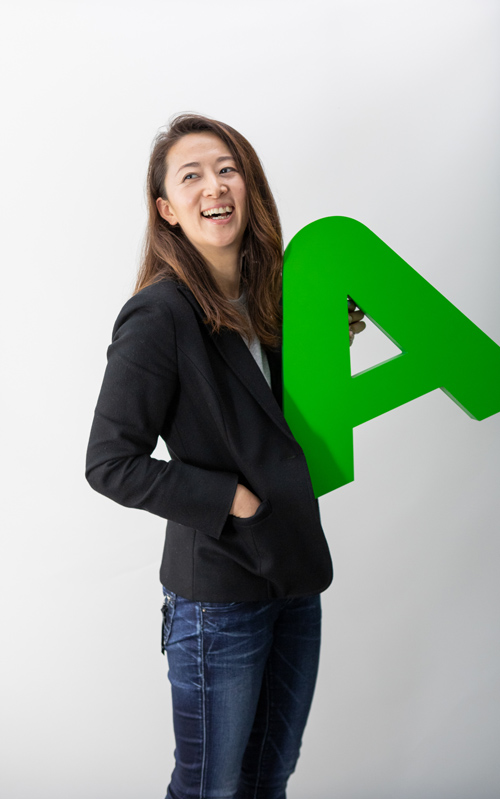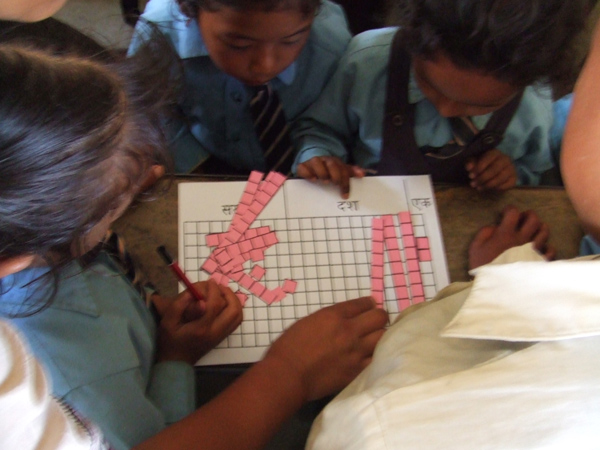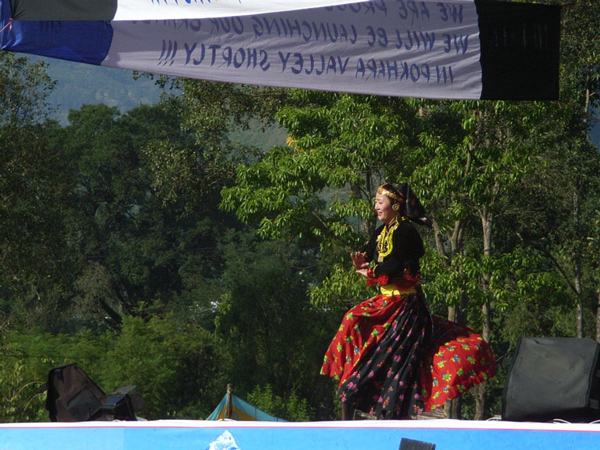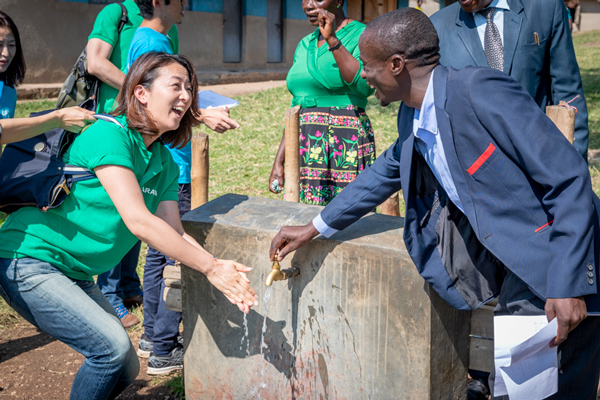SDGs Interviews: Talking poverty with Madoka Mori

SARAYA is one of Japan’s leading companies that implement the United Nation’s Sustainable Development Goals (SDGs). This is the second chapter of SARAYA’s SDGs interview series telling the story of those behind SARAYA and how they are working to achieve those goals. In this second edition, we spotlight Madoka Mori, Assistant Manager of the Sales & Marketing Department and African Business Development Section at the Global Operations Division, as one of the leading person of SARAYA’s Africa business to talk about her story, and her involvement with SDG №1: No poverty.
 |
“We need sustainable business to solve social issues in developing countries.” Madoka Mori |
How did you come to work with SARAYA?
In 2005, while I worked as a member of Japan Overseas Cooperation Volunteers (JOCV) to teach at elementary schools in Nepal I saw social issues I had never seen in Japan. A school I visited had a child with white diarrhea, which may be infectious, in one corner of the school building. They had no toilet, nor clean running water to wash hands, nor any money to see a doctor. It was so shocking that I asked myself, “What can I do in an environment like this?” while realizing the limits of my power. That incident made me realize the need for investments and sustainable businesses to solve these social issues. After returning to Japan, I searched for companies that were doing serious business in developing countries and found SARAYA, which had just launched an African business section. I joined the company because I wanted to make the world a better place through sustainable business.
You joined SARAYA in 2013. What did you do before?
I studied education at Tokyo Gakugei University because I was good at teaching my friends when I was little, getting licenses of elementary school, junior high and high school science. After graduating from university, I had an opportunity to become a member of the JOCV volunteer group and got dispatched to Nepal. The JOCV volunteer group is a system of dispatching Japanese volunteers overseas operated by the Japan International Cooperation Agency (JICA), a governmental agency similar to the U.S. Peace Corps.
I was assigned as a school supervisor to oversee 20 elementary schools in Nepal for 2 years, 2005-2007. These were situated between 1,400m and 2,400m altitudes, scattered across 20km, with a very limited budget where you couldn’t afford materials to teach mathematics and science. I improved arithmetic instruction, proposed science experiment methods, and organized nutrition improvement events with schools. It was quite an experience, living like the local people with a very small budget, having electricity only 2 hours a day.
After completing my assignment, I returned to Japan and joined an outdoor manufacturer, Mont-bell, as I wanted to build business experiences by helping people in developing countries. I was in charge of managing not only about 80 retail stores and 4 franchise stores, but also promotion, marketing, public relations, and organizing events, including MC-ing and leading guided client tours. After I left Mont-bell, I worked at the JICA headquarter, providing career support for returning volunteers for one year.
Why did you want to do business in Africa?
When I was a fifth-grader in elementary school, I found a photo of Sadako Ogata, the head of the United Nations High Commissioner for Refugees, on my social study textbook. I was deeply impressed that a Japanese woman was playing such an important international role in Africa. Next to her photo, there was a photo of the Japanese volunteers of JOCV digging a well in Africa. I thought, “It might be difficult to become like Ms. Ogata, but I could be one of the volunteers of JOCV and go to Africa.” The dream of volunteering part came true when I later joined JOCV and worked in Nepal. But working in Africa part was yet to come. It was SARAYA which paved a way to Africa for me. It has been challenging, but at the same time quite rewarding. Very surprisingly, the Africa business of SARAYA with my profile photo was introduced as an example of a corporate role of SDGs in 2019. I never dreamed that the business I was involved with would be introduced on the same page where I found Ms. Ogata more than 20 years ago.
How was it like to work in Nepal as a JOCV member?
When I was in Nepal in 2005-2007, strikes, road blockades, and blackouts occurred frequently due to political uncertainties, with buses often not available and having to walk up mountainous roads for two and a half hours each way. There was a constant shortage of electricity (most of the electricity from hydropower was sold to India and not much was left in Nepal) and people lived on 2 hours of electricity a day. I quickly learned that the light of candles and the full moon were very bright.
The schools I was assigned with where in the area between Bhaktapur (a beautiful ancient city) and Nagarkot (2175m in altitude), training teachers. After working there for a year, I attended a meeting with 20 principals from the schools I taught. A principal was dissatisfied with me and said, “What are you doing here? You did not bring any funds to donate! What can you do without them?” Those words changed me and I decided to do things more proactively since then.

To come up with better teaching methods at low costs, I made teaching materials from scratch and distributed them to all schools. Most schools did not have the budget for study materials so students could participate in active learning, only blackboards and chalk, and teachers did not understand why children made mistakes. I did a case study of the occurring students' mistakes and organized training for teaching methods based on its results. When it comes to science experiments, I realized teachers hadn’t actually conducted any experiments described in the textbooks on their own, so we came up with new ones using materials available within the schools’ small budget, making children think and learn proactively while building the confidence of the teachers.
In my spare time in Nepal, I learned Buddhist paintings (tanka) and Nepalese dance. I challenged myself to dance in public, dancing at the 50th-anniversary ceremony of Japan-Nepal diplomatic relations as well as various school events, even appearing on a music video. When school was off, I went trekking into the Himalayas, climbing mountains such as Kala Patthar (5643M), Gokyo Peak (5357M) and Lantern Valley (4350M). These experiences made me fall in love with mountains and outdoor activities, and maybe that’s why I later ended up working at Mont-bell, the outdoor manufacturer.

Why did you want to work with Africa at SARAYA?
I joined SARAYA to find an answer to the questions I found in Nepal. What could we do to improve conditions in the developing world? As I mentioned earlier, I saw social issues in Nepal; lost lives with infectious diseases, unhygienic environments, no clean water, no toilets, no electricity, little to no funding for education and so on... All because of poverty. It was a time I strongly felt the limits of my power and realized that we need sustainable businesses to fight against poverty.
When I was looking for a job, I came across SARAYA. On top of being a company that creates sustainable business in developing countries, they manufacture hygiene products and promote hygiene where it was not available before. SARAYA promoted hygiene and introduced medicated liquid soap, saving lives in Japan in the 1950s when Japan was still recovering from World War II, and now they are reaching out to other countries to do the same.
Could you tell us about SARAYA’s involvement in Africa?
Not only limited to Africa, as we are also involved in other developing countries around the world, I know that there are lives you could save with the knowledge and methods available in developed countries. SARAYA, as a manufacturer of hygiene products, has means to save those lives. They predict that Africa will have a quarter of the world's population by 2050, a great reason to invest now in the continent, and a lot of business opportunities.
It's been eight years since I was appointed to the Ugandan market and we have made a significant growth despite the hardships. We found all kinds of issues like complicated regulations where the business flow is not very clear or the people in charge change often, poor prospects after the collapse of long-term administrations, unstable economic activity, undeveloped distribution networks… But despite that, I’m really happy about what we are doing. Ever since I saw those photos of Ms. Sadako in my textbook I always wanted to go to Africa and seeing the business we built in Uganda taking off makes me proud.
It was quite an effort, but we built the foundation, hired people, started manufacturing, and created a market. I feel that the company is fulfilling its CSR (corporate social responsibility) as I see the government of Uganda using our products for the national infection control such as Ebola and Coronavirus epidemic. I am also happy that our Ugandan employees have found the jobs rewarding and the growing demand for SARAYA products.
The staff has been working very hard at educating the public about hygiene. In 2012 and 2013, we conducted a hand hygiene experiment according to World Health Organization (WHO)’s guidance, installing alcohol sanitizers at the Gombe Hospital in Uganda and offering training to health workers on the importance of hand hygiene for infection control, making sure they follow the guidelines under our instructors’ supervision. The result showed significant improvement in both C-S sepsis and acute diarrhea cases. Again, it was thanks to our instructor staffs’ hard work.
As a result, they call disinfectants “SARAYA” in Uganda. The Japanese ambassador to Uganda told us that you see SARAYA products everywhere in Uganda due to this coronavirus pandemic. I have faith that our staff, both in Uganda and Kenya, will expand the market by themselves. Local staff who say that they can do anything, with the same mindset as venture entrepreneurs, have future potential for business in SARAYA. I am very proud to be a part of the African team.
Does SARAYA do anything tackling poverty, the SDG no.1, in Uganda?
![]()
There are two things we do in Uganda regarding the SDG1 - no poverty.
The first is that we create job opportunities as the first hand sanitizer manufacturer established in Uganda. We manufacture ‘Alsoft V’ hand sanitizer, with ethanol made out of molasses waste from a major sugar manufacturer in Uganda, to fight against infectious diseases, like Ebola and coronavirus.
Secondly, we try to help people who are at risk of poverty. We promote the “100% Hospital Hand Hygiene Project” which provides Alsoft V hand sanitizers in hospitals, especially maternity wards, as C-S sepsis, an infectious disease that kills pregnant women, is frequently reported not only in Uganda but in all East Africa. We have also launched the “Safe Motherhood Project”, which to supply hand sanitizer in hospitals to prevent maternal sepsis and protect pregnant women who are at risk of infection due to poverty. Part of the sale of SARAYA cosmetics in Japan is donated to an NGO that fights infectious diseases at clinics in Uganda.
What are your hobbies? What do you do during your free time?
From elementary school through university, I participated in track and field teams, so I love to exercise. I like outdoor activities, like camping, fishing, and trekking. Recently I started gardening, growing my own vegetable garden and looking forward to harvesting some peas I’m growing. I’m also a master in calligraphy, holding the 6th dan (level), practicing Japanese brushwork calligraphy since I was in kindergarten.
What is your next goal, be it SDGs or business in Africa?
Our Africa Team began creating markets from scratch in Uganda and Kenya, where people knew little about hand sanitizers. Sales were sluggish in the beginning, but now demand is six times more than that of the previous year and is expected to grow further, especially with this coronavirus outbreak. The team recognizes the responsibility of social contribution to fight against infectious diseases and commits to work to increase supplies. We will continue to grow for the benefit of Africa and other developing countries.
On the other hand, as a new initiative, I would like to create a platform where we can do more business with Africa and developing countries in Japan. There are many people who joined SARAYA because they are interested in our African business and with them, I hope to broaden our horizons to do business with Africa in many ways, like introducing “Good Africa”, a project that would translate on the sell of good products from Africa in Japan and beyond.

Could you give a message or advice for young people?
There is a proverb, "where there is a will, there is a way". I believe many things are possible if you really wish for them. I would like to further challenge African businesses inside and outside and I hope many more people will join us in making a difference.
Improving the sanitation, the environment, and health of the world.
Social

© Copyright Saraya.Co.Ltd 2024 All rights reserved.